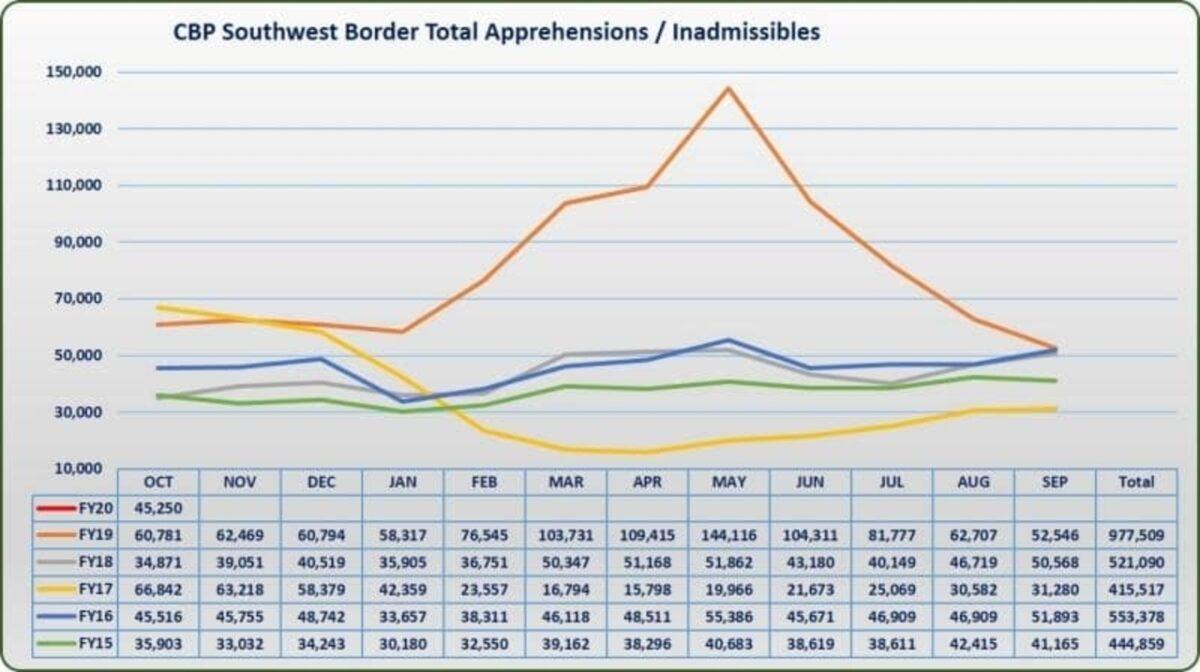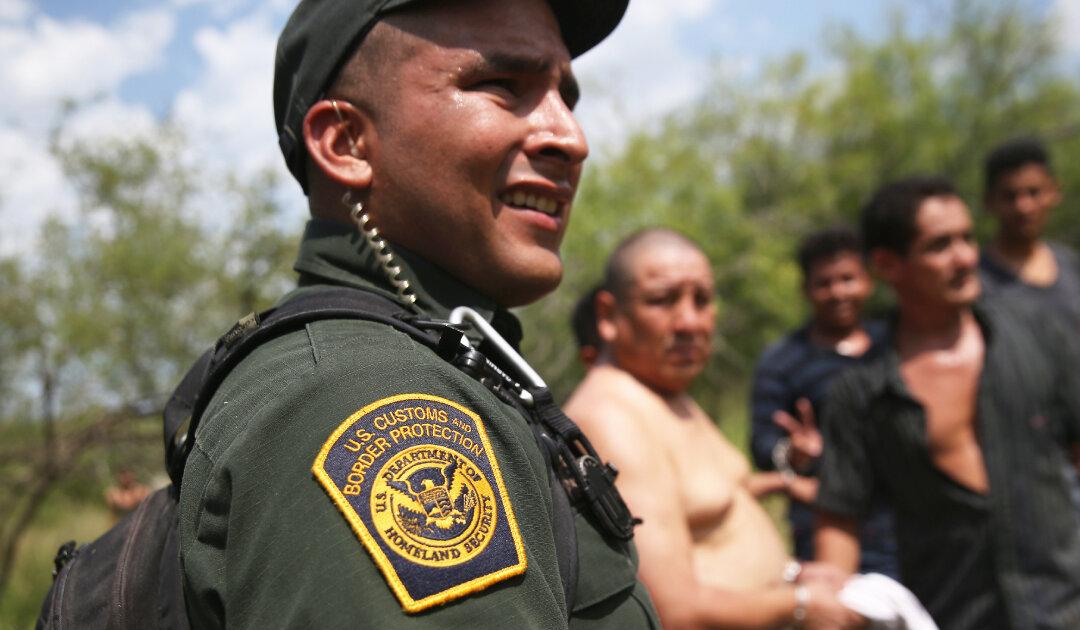U.S. Customs and Border Protection (CBP) Acting Commissioner Mark Morgan announced Thursday that the number of apprehensions and inadmissible cases along the Southwest border fell again in October to a total of 45,250—down 14 percent from September. This was the fifth consecutive month that apprehensions have fallen, with arrests down 68 percent from a peak of 133,000 in May.

Southwest border migration for the Financial Year 2020. Photo: U.S. Customs & Border Protection





